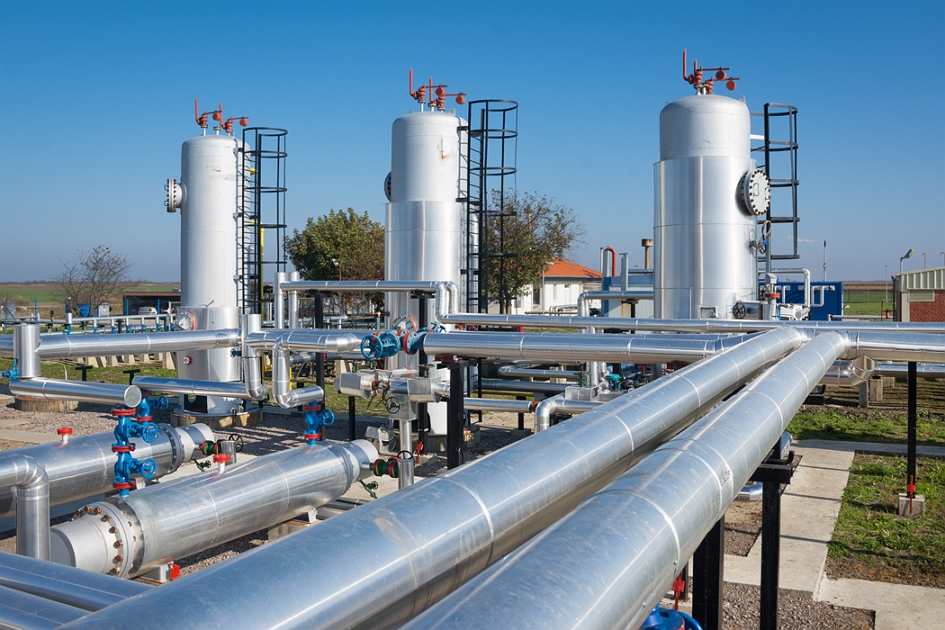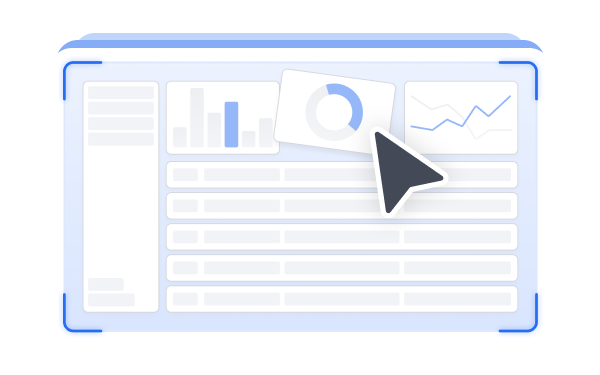In the oil and gas industry, particularly within plant processing of natural gas, accounting isn't just about debits and credits. It’s about tracking molecules, managing multi-party settlements, and ensuring compliance in one of the most highly regulated industries in the world.
For gas plant processors, traditional accounting software falls short. That’s why specialized gas plant accounting software is not just beneficial; it’s essential.
This blog explores why gas plant processors need a software solution for gas plant processors, what features they should look for in gas processing software, and the risks of using generic tools in a highly specialized field.
We'll also examine how integrated systems like TIES help companies streamline both operational and financial data in a centralized, efficient, and compliant manner.
#Why Gas Plant Processors Have Specialized Accounting Needs
Natural gas processing involves more than simply receiving raw gas and sending it down the pipeline. The process often includes:
Fractionation: Separating natural gas liquids (NGLs) into individual components like ethane, propane, butane, etc.
Shrinkage or Shrink: The reduction in gas volume during processing, due to the removal of liquids and impurities.
Multi-party ownership: Where multiple producers contribute gas to a single plant, requiring accurate allocation and settlement.
Component balancing: Tracking not only the total gas volume but also each component within the gas stream.
Each of these factors adds a layer of complexity to the accounting process. Conventional tools like spreadsheets or generic ERP systems simply can’t handle the intricate calculations, allocations, and compliance requirements that gas plant processors face daily.
#The Role of Gas Plant Accounting Software
To manage these complexities, processors turn to gas plant accounting software; a specialized solution built specifically for the oil and gas midstream sector. This software is designed to address industry-specific challenges that no off-the-shelf accounting software can.
Here are key features to look for in a software solution for gas plant processors:
Component Tracking
Gas streams are composed of various hydrocarbons and impurities. Specialized software must track these components from the wellhead through the plant, enabling accurate:
Measurement of input/output volumes
Shrink calculations
Product quality analysis
Regulatory reporting
This level of tracking is essential for accurate billing and environmental compliance.
NGL Settlement
Natural Gas Liquids are a valuable byproduct of gas processing, but their ownership must be clearly defined. A robust gas processing software can:
Allocate NGLs to the correct owners based on input volumes and agreements
Calculate pricing based on market indices
Generate detailed settlement reports
This ensures transparency, trust, and accuracy in multi-party arrangements.
Gas and NGL Allocations
Allocating processed gas and NGLs among various owners is a critical function. The software should be able to:
Use contractual allocation formulas
Handle complex ownership scenarios
Allocate volumes and revenues precisely
Mistakes in this area can lead to underpayments, disputes, or regulatory issues.
Integration with Measurement and SCADA Systems
Automating data flow from field devices and measurement systems into the accounting platform reduces manual entry errors and speeds up processing time.
Regulatory Compliance and Audit Trails
Gas processors operate in a heavily regulated environment. The right gas accounting systems provide:
Detailed audit trails
Compliance-ready reporting
Secure data storage
This is especially important during audits or regulatory reviews.
#The Risks of Using Generic Accounting Tools
Some gas processors may attempt to use general ERP systems like QuickBooks, Excel, or even generic oil and gas ERP platforms. Unfortunately, this opens the door to several significant risks:
Compliance Failures
Generic tools often don’t offer industry-specific tax reporting, environmental compliance features, or audit-ready data. This can result in:
Fines from regulatory bodies
Failed audits
Legal liabilities
Inaccurate Allocations
Improperly allocated volumes or revenue can cause mistrust among producers, partners, or stakeholders. In some cases, this can escalate into litigation or contract disputes.
Operational Inefficiencies
Using tools not tailored to plant processing of natural gas requires more manual work, which is prone to human error. Time-consuming spreadsheets can also delay monthly close processes, affecting cash flow and reporting.
Lack of Scalability
As operations grow, generic tools fail to scale with increasing complexity. Adding new plants, partners, or product streams becomes a logistical nightmare.
In contrast, purpose-built oil accounting software is scalable, automated, and designed for the dynamic nature of the oil and gas industry.
#How Software Like TIES Brings Everything Together
Modern cloud-based oil and gas software platforms like TIES go beyond simple accounting; they unify operational and financial data in one integrated system.
Key Advantages of TIES and Similar Platforms
Real-Time Data Integration
TIES connects seamlessly with SCADA, measurement, and field data systems. This allows for real-time updates and reduces manual data input, enhancing accuracy.
Unified Operational and Financial View
Instead of maintaining separate systems for plant operations and financial reporting, TIES centralizes data. This means:
Streamlined workflows
Faster month-end close
A single source of truth for audits and decision-making
Cloud-Based Flexibility
TIES is a cloud-based oil and gas software solution, meaning:
No need for on-premise servers
Easy updates and maintenance
Remote access from any location
Enhanced data security and backup options
Customized Reporting and Dashboards
From NGL settlements to shrinkage reports, TIES allows users to build tailored reports and dashboards for all stakeholders; accountants, engineers, and executives alike.
Regulatory-Ready
Whether it's FERC, PHMSA, or state-specific agencies, TIES is built to generate reports that meet stringent regulatory requirements, ensuring compliance at every level.
#Real-World Impact of Specialized Gas Processing Software
Companies that transition from manual or generic systems to specialized gas processing software typically see improvements across several KPIs:
30–50% faster month-end close
Significant reduction in audit findings
Improved partner satisfaction through accurate and timely settlements
Increased operational transparency
Reduced staff hours spent on manual data reconciliation
In a competitive and volatile market, these improvements can make the difference between surviving and thriving.
#Conclusion: Invest in the Right Software Solution
The intricacies of plant processing of natural gas require more than general-purpose tools. From component-level tracking to multi-party NGL settlements, the accounting demands of gas plant operations are unique and complex. Using generic accounting software not only introduces inefficiencies; it creates risk.
Instead, gas processors should invest in purpose-built gas plant accounting software that understands their business from the ground up. Solutions like TIES offer a modern, integrated, and cloud-based approach that simplifies accounting while enhancing operational insight.
By adopting specialized gas accounting systems, gas plant processors can ensure accuracy, maintain compliance, and ultimately improve profitability in a challenging market.




